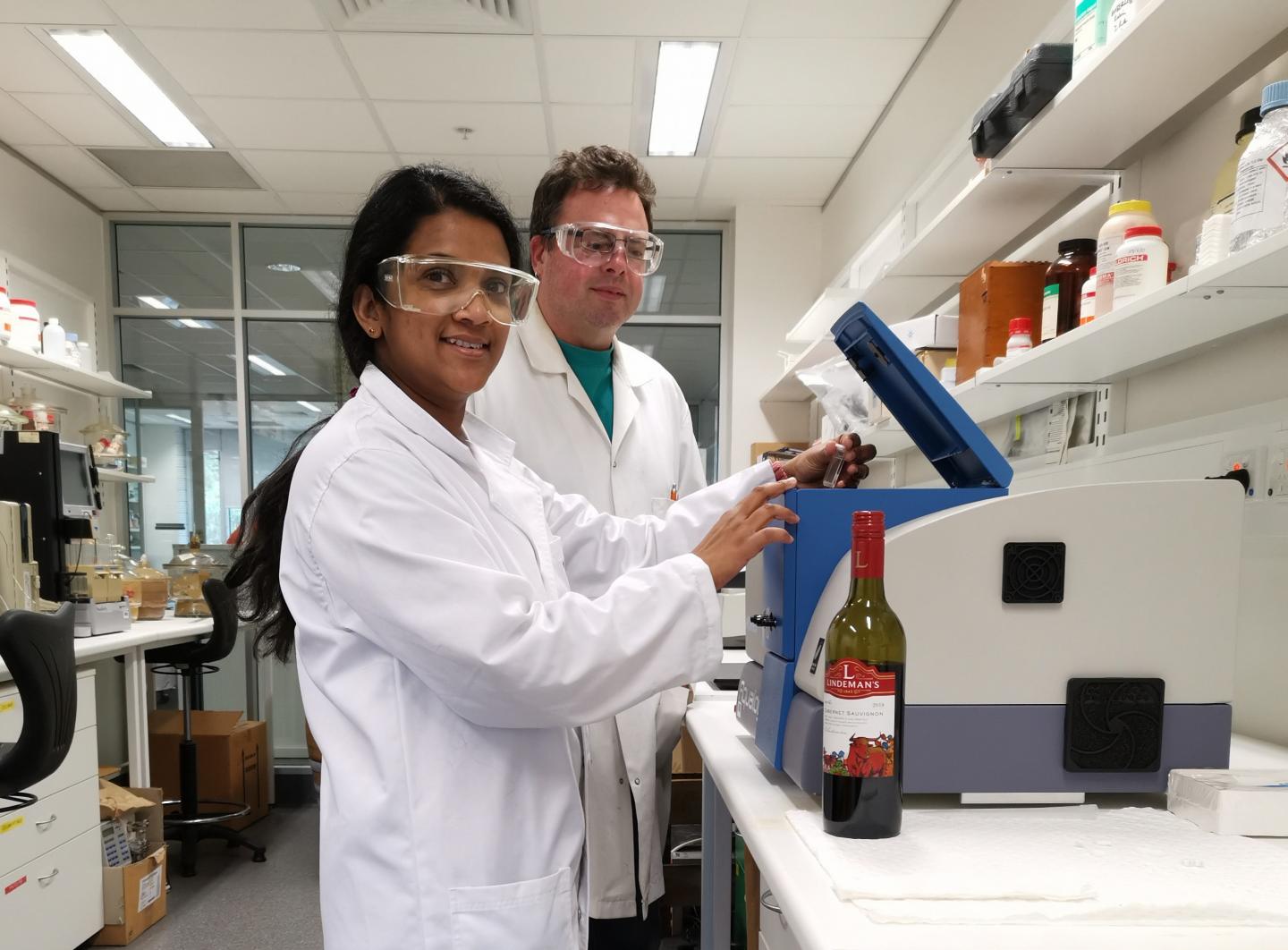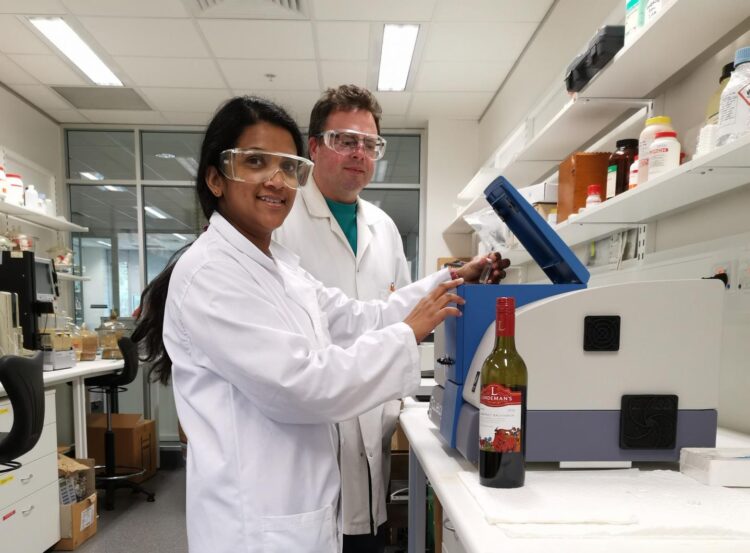
Credit: Courtesy of University of Adelaide.
University of Adelaide wine researchers are developing a fast and simple method of authenticating wine – a potential solution against the estimated billions of dollars’ worth of wine fraud globally, but also offering a possible means of building regional branding.
The team of scientists were able to identify the geographical origins of wines originating from three wine regions of Australia and from Bordeaux in France with 100% accuracy with a novel technique of molecular fingerprinting using ‘fluorescence spectroscopy’, a technology that analyses fluorescence of molecules.
“Wine fraud is a significant problem for the global wine industry, given a yearly economic impact within Australia alone estimated at several hundred million dollars, and globally thought to be in the billions of dollars,” says Ruchira Ranaweera, PhD student in the University’s Waite Research Institute, who conducted the research.
“Wine authentication can help to avoid any uncertainty around wine labeling according to origin, variety, or vintage. The application of a relatively simple technique like this could be adapted for use in the supply chain as a robust method for authentication or detection of adulterated wines.”
The researchers looked at Cabernet Sauvignon ¬- a globally important grape variety and the second most planted in Australia – from three different wine regions of Australia and Bordeaux in France, the birthplace of Cabernet Sauvignon.
The research has been published in the journal Food Chemistry and was supported by Wine Australia and the Australian Government, the Waite Research Institute and industry partners through the ARC Training Centre for Innovative Wine Production.
The researchers compared an existing approach for authentication, which involves measuring elements in wine samples using ‘inductively coupled plasma-mass spectrometry’ (ICP-MS), with the more simple, rapid and cost-effective fluorescence spectroscopy technique.
“This method provides a ‘fingerprint’ of the samples according to the presence of fluorophoric or light-emitting compounds,” says Ms Ranaweera. “When used in combination with a robust data analysis using a particular machine learning algorithm, it is proving to be a powerful technique for authentication.”
In every wine they tested using the novel combination of fluorescence spectroscopy with machine learning-driven data analysis, they were able to correctly allocate the wine to region with the fluorescence data but not with elements determined by ICP-MS.
There are other useful applications of this technology for the wine industry that are available now or in the pipeline, such as phenolic and wine colour analysis, and smoke taint detection.
Project leader Associate Professor David Jeffery, from the Waite Research Institute and the ARC Training Centre for Innovative Wine Production, says they hope ultimately to identify specific chemical markers that help discriminate between wine regions.
“Other than coming up with a robust method for authenticity testing, we are hoping to use the chemical information obtained from fluorescence data to identify the molecules that are differentiating the wines from the different regions,” Associate Professor Jeffery says.
“This may help with regional branding, by understanding how their wines’ characteristics are influenced by the region and how they differ from other regions.”
###
Media Contact:
Associate Professor David Jeffery
Waite Research Institute
University of Adelaide
Phone: +61 (0)8 8313 6649
[email protected]
Robyn Mills
Media Officer
University of Adelaide
Phone: +61 (0)8 8313 6341
Mobile: +61 (0)410 689 084
[email protected]
Media Contact
Associate Professor David Jeffery
[email protected]
Related Journal Article
http://dx.





